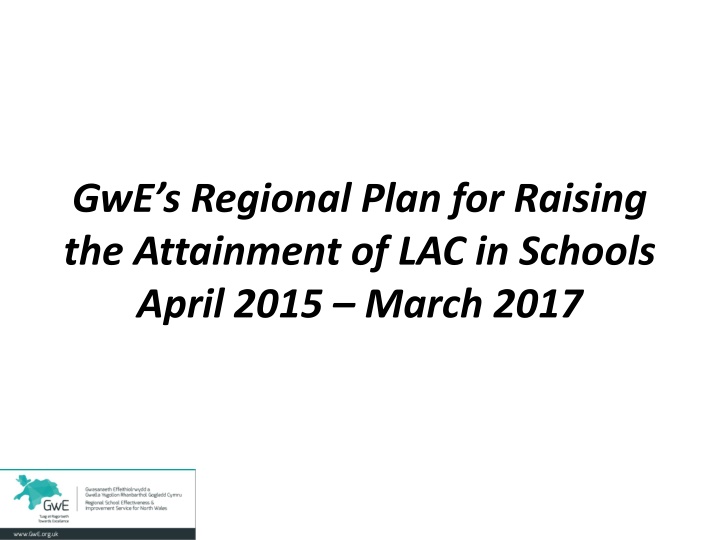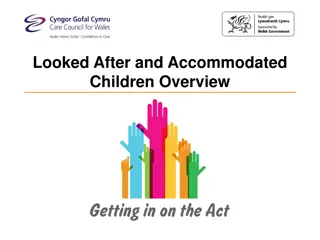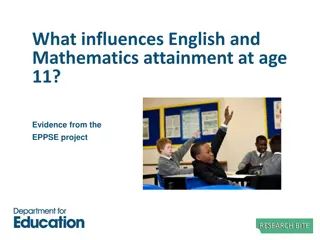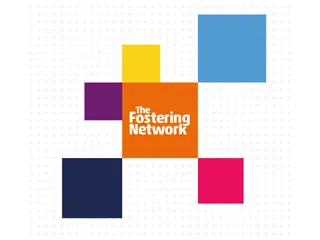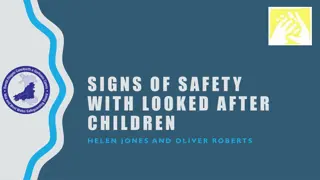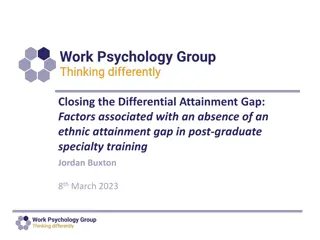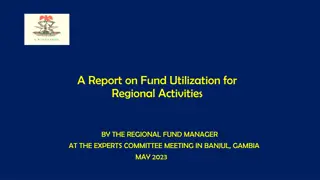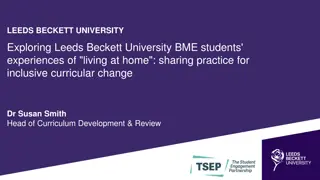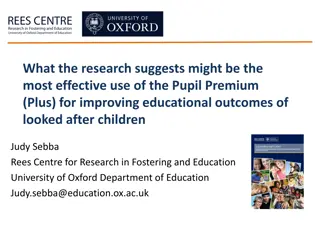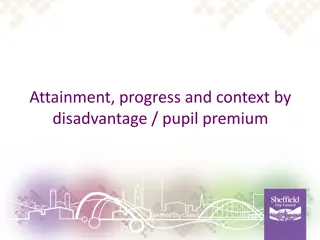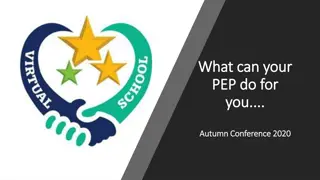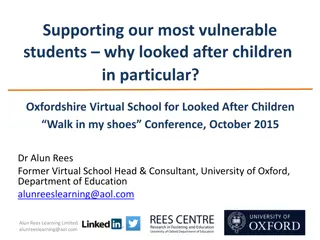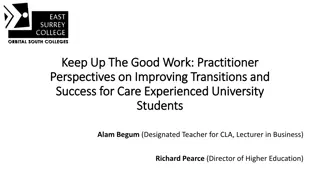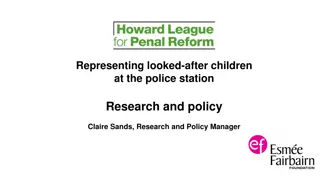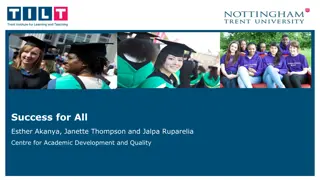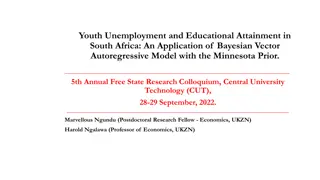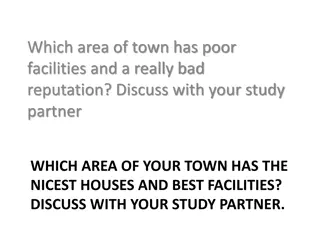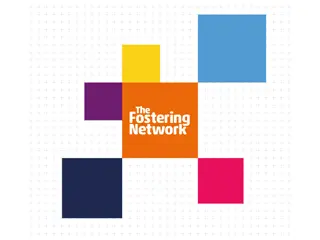Regional Initiatives for Enhancing Educational Attainment of Looked After Children
Initiatives in Wales aim to improve educational outcomes for Looked After Children by addressing gaps in the education system and implementing strategic funding allocations to support their academic potential. Progress has been slow but efforts continue to ensure every child reaches their full potential.
Download Presentation

Please find below an Image/Link to download the presentation.
The content on the website is provided AS IS for your information and personal use only. It may not be sold, licensed, or shared on other websites without obtaining consent from the author.If you encounter any issues during the download, it is possible that the publisher has removed the file from their server.
You are allowed to download the files provided on this website for personal or commercial use, subject to the condition that they are used lawfully. All files are the property of their respective owners.
The content on the website is provided AS IS for your information and personal use only. It may not be sold, licensed, or shared on other websites without obtaining consent from the author.
E N D
Presentation Transcript
GwEs Regional Plan for Raising the Attainment of LAC in Schools April 2015 March 2017
Qualified for Life an education improvement plan for 3-19 year-olds in Wales states the Welsh Government s commitment to raising standards and sets out the vision that all learners will enjoy learning that inspires them to succeed.
GwE, and the six North Wales local authorities as part of their role as corporate parents, share this aim that every child and young person, regardless of their background and start in life, should benefit from excellent teaching and learning.
Part of local authorities corporate parenting strategy is to ensure that an appropriate plan is in place to make sure that every Looked After Child achieves his or her full potential.
There is clear evidence that the education system nationally is failing to support children who are looked after (LAC) effectively. As a group, they have unsatisfactory experiences resulting in educational attainment rates significantly below that for other mainstream children.
Estyn has found that there has been some progress in schools in Wales in supporting LAC to reach their academic potential, but the impact has been marginal and the pace of improvement too slow.
The WGs Pupil Deprivation Grant funding, which aimed to support the education of LAC had previously been allocated directly to schools on a fixed sum per pupil basis, with the funding following the learner. WG, LA s and schools have found this to be ineffective in delivering evidence of improving educational outcomes. WG believe that a more holistic and strategic approach is required to the allocation of financial support.
From April 2015, the Welsh Government re- directed the PDG funding allocation for LAC to regional education consortia, who are responsible for ensuring that targeted support makes a real and evidence-based impact on the educational attainment of LAC.
We have high-level strategic objectives to drive this agenda and provide a framework for future action, that will: Raise the educational aspirations and attainment of LAC and the ability of those who care for them to support their educational development; Reinforce the collective accountability and effective leadership across the Welsh Government, local authorities, schools, further and higher education institutions for the educational outcomes of LAC;
Make education a priority and point of focus, especially during the periods of upheaval and uncertainty that can happen in the life of LAC; Identify data that will aid practice, policy making and monitoring of educational outcomes; Ensure excellent practice is identified, promoted and shared wherever it exists.
Our regional plan to raise the attainment of LAC in our schools is based on WG s consultation document Raising the ambitions and educational attainment of children who are looked after in Wales published in January 2015, and also takes account of Estyn s latest Annual Report, and their findings with regards to best practice in schools in Wales.
As a result, GwE and the local authorities will commit to: Identify and implement practical action needed to overcome barriers to delivery Robustly challenge under-performance Achieve clarity and alignment of expectations of the key roles in supporting LAC Share good practice and ensure interpretation of existing guidance is consistent across the region Ensure better monitoring of outcomes for funding directed to support LAC
The regional plan is being overseen and coordinated by GwE in partnership with the LACE coordinators from each of the LAs, working together as a group. The plan has three levels of support for the region s LAC: 1. Developing a whole school approach 2. Developing a school-to-school approach 3. An individualised approach where necessary
1. Developing a whole school approach Estyn s Annual Report for 2013-14, published in January 2015, stated that the following features that were common to schools who effectively supported vulnerable pupils, including LAC: A range of strategies and approaches were available and used in school not a one size fits all approach Consistency of approach across the school all staff, including teaching assistants and mid-day supervisors, were well informed and able to support vulnerable learners appropriately A key member of staff had lead responsibility for vulnerable learners, and was able to train and support colleagues across the school, as well as being a first point of contact for the learners themselves
Our plan incorporates this philosophy by delivering a programme of whole school training on interventions that have a proven track record of success. We are working in partnership with the LA s inclusion and youth services to provide equal access to a comprehensive menu of training to all schools who have registered LAC on roll. We are ensuring that there are specific professional learning opportunities on managing challenging behaviour and recognising the needs of children suffering from trauma and attachment issues.
The benefits of this approach also include: a more sustainable programme of support within schools. By up-skilling staff in the use of the most effective strategies to support LAC in their school, this can be continued when the grant funding is discontinued. a wider-reaching programme of support within schools. The strategies used would also benefit other vulnerable learners, not only the LAC e.g. adopted children, asylum seekers, some eFSM children.
2. Developing a school-to-school approach School-to-school working is at the heart of all recent national initiatives, and is integral to GwE s current Business Plan. We recognise that many schools have effective practice and we re eager to use this to support other schools within the region and beyond. There is a clear role for LA LACE coordinators to identify, and for GwE to facilitate the sharing of this best practice at a regional level. The Co-leading School approach has been extended to incorporate effective practice in whole school strategies to support LAC, and funding will be allocated appropriately for the CLS to act as hubs to support other schools in the region.
Sub-regional networks will also continue to be developed and supported by LACE coordinators and these will be forums for further sharing of effective practice, as well as a support mechanism for school-based practitioners. This is also aligned with the approach agreed by the six North Wales LAs to the work within the National Model i.e. regional leadership and coordination supporting local delivery.
3. An individualised approach where necessary There will continue to be LAC who need specialised support in a particular area, or who may benefit from access to certain opportunities to further their educational potential. We believe that it is important to build in the flexibility to accommodate such needs within our plan. An agreed amount of funding has therefore been allocated to each authority for such cases. Priority will be given to Yr6 and Yr11 LAC to support their transition into the next phase of their education journey. Each case isbrought to the attention of the regional LACE group, who discuss and respond appropriately on a needs basis, in effect, acting as a regional moderation panel.
Monitoring of the regional plan The plan is monitored by: LACE coordinators in each LA, who will continue within their current role to monitor provision and outcomes of every LAC within their own LA. GwE Challenge Advisors will, as part of their role in monitoring and challenging school performance and provision, ensure that suitably challenging targets are set for LAC, and that outcomes are in line with potential. Each LA s LACE coordinator, along with GwE s strategic lead for poverty and disadvantage and GwE s Regional Strategic lead For LAC meet regularly as the regional monitoring group, to review progress against the plan s targeted outcomes. Regular reports will be submitted to GwE s SLT, Management Board, User Group and Joint Committee, as well as WG. GwE s Management Board will then share the progress reports with the corporate parenting strategic groups in their respective LAs.
